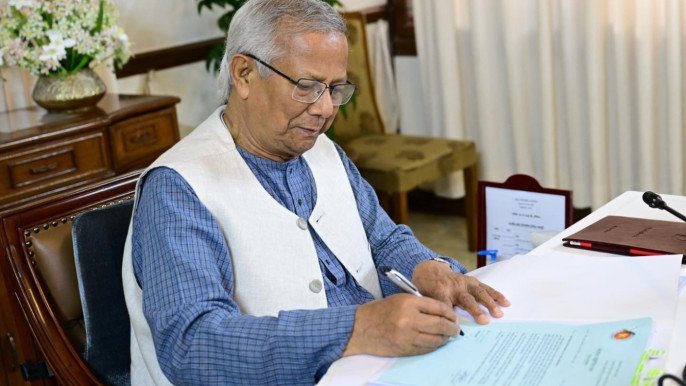In a major development, the interim government’s Advisory Council has approved the draft of the Anti-Terrorism (Amendment) Ordinance, 2025, incorporating sweeping new powers to ban the activities of individuals and entities involved in terrorism, including on online and social media platforms.
The ordinance, approved in principle and finalized by Chief Adviser Muhammad Yunus, was cleared during a meeting of the Advisory Council held today at the State Guest House Jamuna in Dhaka, according to a press release issued by the CA’s Press Wing.
The new provisions amend the existing Anti-Terrorism Act, 2009, which previously had no explicit clause to prohibit the operations of terrorist-linked organizations or individuals. The ordinance enables the government to declare any person or entity involved in terrorism as banned, and to list them in an official schedule via notification in the government gazette.
“These amendments are necessary to make the law timely and effective,” the CA’s Press Wing stated, highlighting the inclusion of restrictions on dissemination of terrorist content or activities through online and social platforms.
The ordinance is expected to be formally issued tomorrow (12 May), marking a significant step in the government’s counterterrorism strategy.
This legislative move follows closely on the heels of amendments to the International Crimes (Tribunals) Act, 1973, aimed at enabling the prosecution of the Awami League (AL) for alleged genocide and crimes against humanity. In a dramatic escalation, sources confirm that the interim government has decided to officially ban the Awami League under the revised anti-terror laws, with an official notification expected Monday.
The decision comes amid growing protests demanding action against the AL, and reflects the interim administration’s broader effort to clamp down on political violence and extremism under emergency legal provisions.



